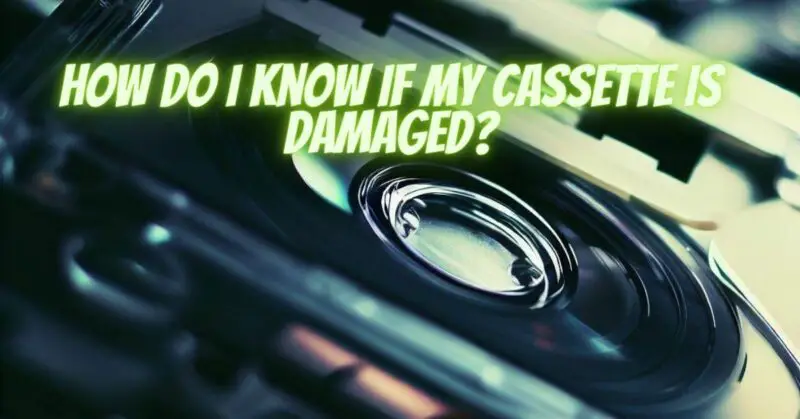Cassette tapes can be damaged in a number of ways, including physical damage, exposure to moisture, and magnetic fields. If you think your cassette tape may be damaged, there are a few things you can look for:
- Physical damage: Look for any scratches, dents, or tears in the tape. If the tape is physically damaged, it is likely to be bad.
- Mold or mildew: If you see any mold or mildew on the tape, it is definitely bad. Mold and mildew can damage the tape’s magnetic coating and make it unplayable.
- Sticky tape: If the tape is sticky, it is likely to be bad. The sticky tape can damage the tape’s playback heads.
- No sound: If you try to play the tape and there is no sound, the tape is likely bad. The tape may have been damaged or the magnetic coating may have worn off.
- Static or noise: If you hear static or noise when you play the tape, the tape may be bad. The static or noise is caused by interference with the tape’s magnetic coating.
If you see any of these signs, the cassette tape is likely bad and should not be played.
Here are some additional things to keep in mind:
- The age of the tape: The older the tape, the more likely it is to be bad.
- The way the tape was stored: If the tape was not stored properly, it is more likely to be bad.
- The type of tape: Some types of tapes are more prone to damage than others.
If you are unsure whether a cassette tape is bad, it is best to err on the side of caution and not play it. Playing a bad tape can damage your cassette player.
If you have a cassette tape that you think may be bad, you can try to repair it. There are a few ways to do this, but the best way depends on the specific damage to the tape. You can find information on how to repair cassette tapes online or in repair manuals.
If you are unable to repair the tape, you can try to digitize it. This means converting the audio on the tape to a digital format, such as MP3. You can then store the digital file on a computer or other device.
Digitizing your cassette tapes is a good way to preserve them for future generations. It also allows you to listen to them on devices that do not have a cassette player, such as smartphones and tablets.

